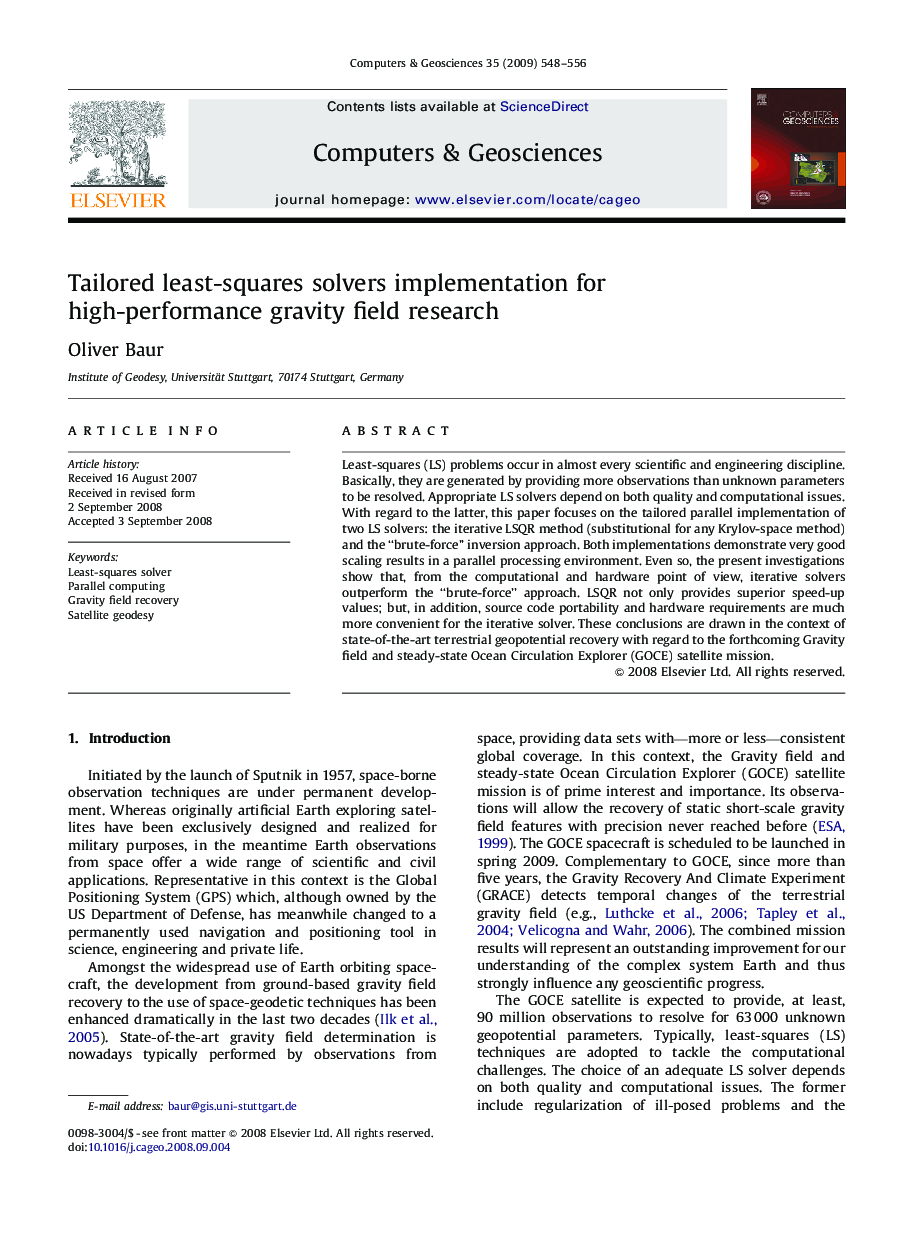| Article ID | Journal | Published Year | Pages | File Type |
|---|---|---|---|---|
| 508321 | Computers & Geosciences | 2009 | 9 Pages |
Least-squares (LS) problems occur in almost every scientific and engineering discipline. Basically, they are generated by providing more observations than unknown parameters to be resolved. Appropriate LS solvers depend on both quality and computational issues. With regard to the latter, this paper focuses on the tailored parallel implementation of two LS solvers: the iterative LSQR method (substitutional for any Krylov-space method) and the “brute-force” inversion approach. Both implementations demonstrate very good scaling results in a parallel processing environment. Even so, the present investigations show that, from the computational and hardware point of view, iterative solvers outperform the “brute-force” approach. LSQR not only provides superior speed-up values; but, in addition, source code portability and hardware requirements are much more convenient for the iterative solver. These conclusions are drawn in the context of state-of-the-art terrestrial geopotential recovery with regard to the forthcoming Gravity field and steady-state Ocean Circulation Explorer (GOCE) satellite mission.
